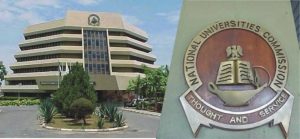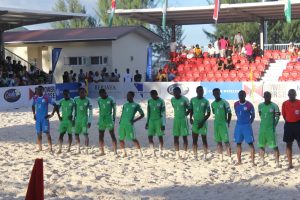
Introduction
When the Senior Staff Academic Association of Nigerian Universities (SSANU) and Non-Academic Staff Union (NASU) threatened to commence a nationwide strike last week, it looked like a mere statement.
The threat seemed as if the unions might not want the university community to suffer another round of strikes, having just returned from a protracted strike embarked upon by the Academic Staff Union of Universities (ASUU) in 2023.
But on Monday, March 18, 2024, the reality dawned on Nigerians that our universities are again ready for another industrial action that will throw the Ivory Towers into an academic lull for some time.
Just before the Buhari-led administration wound down, ASUU embarked upon a prolonged strike of about eight months that paralysed academic activities on university campuses.
Consequences of Earlier Strike
In the face-off between the Buhari regime and ASUU, students, parents, and the nation, were not left unscathed. They were the collateral damage.
They were trampled upon roughshod by the severe impact of the strike. Many students took to illegal and nefarious activities. Some became criminals, joining bad groups.
Female students turned themselves into sex workers, and many others embraced cyber fraud, swindling innocent citizens of their hard-earned money.
University campuses became ghost cities, while some lecturers were sent to their graves because salaries were not paid. Buhari had adopted a no work no pay policy.
When ASUU ended the strike after the then Speaker of the House of Representatives, Right Honourable Femi Gbajabiamila, had brokered peace between the two belligerent parties, and lecturers returned to their work, the centre could no longer hold for the academic community. They had to battle hard to cover the lost grounds.
Many universities began to adjust their academic calendars to fit in, designing various means to wriggle out of the logjam created. Students had to bear the brunt. When two elephants fight it is the grass that will suffer.
Some universities had to be creative, running two academic seasons at the same time, having two streams alongside themselves, only to collapse them later.
Students faced a deluge of assignments, marathon lectures in crammed lecture rooms, and grappling for other ill-equipped and inadequate facilities.
Why another round of Strikes?
Coming from this fallout, ASUU, at the tail end of February 2024 had also threatened to commence its suspended strike if the government did not honour the agreement it had with it.
Explaining why it would go on strike again, ASUU chairman, Professor Emmanuel Oshodeke, accused the Federal Government of lying, sweeping all agreements reached earlier under the carpet.
But on October 2023, the new government of President Bola Ahmed Tinubu paid four months out of the seized eight months salaries to lecturers, whereupon some ASUU and Congress of Nigerian University Academics (CONUA) members, at the outset of the payment, had confirmed receiving credit alert.
Meanwhile, SSANU and NASU members claimed they were left out of the payment. They wondered why the government would be discriminatory in its approach at solving a lingering problem. They felt the government that paid the ASUU and CONUA members should have been fair to everyone.
As of Monday, March 18, all university workers in bursary, registry, security, works and maintenance, students’ affairs, and other associated unions have withdrawn their services, while academic activities are at a parlous state.
According to SSANU President, Mohammed Ibrahim, speaking on Channels TV, the situation would remain like it was on Monday for the next seven days unless the government takes necessary action.
Ibrahim complained that no government official had reached out to them, adding that the Minister of Labour, Nkiruka Onyejeocha, had yet to get in touch with the aggrieved unions despite issuing a seven-day notice on Monday ahead of March 18.
He expressed, “The President already has a waiver that we should be paid but some people decided not to pay us.”
Reactions
The President of the Nigerian Labour Congress (NLC) Comrade Joe Ajaero in a release stated, “There has not been any credible reason or explanation for withholding those salaries in the first place…Much worse, it defies logic to try to subject members of these unions to discriminatory treatment.”
Having more than one union embarking on strike at the same time will completely ground the nation’s university system.
A parent, who has two children in two different universities, Mrs Aderonke Elizabeth, lamented that the situation would mean that students would not be able to do anything in their schools, thus wasting their time and stipends that are hard to come by.
“There will be no security. They will not be able to sign their forms. Laboratories will be locked against them. Lots of activities will be paralyzed,” Elizabeth expressed.
Speaking, Favour Adejare, a 100-level student of Mechanical Engineering, Ekiti State University where NASU had down tools earlier, said, the newly admitted students were not attended to.
“We could not sign our forms. We could not do our medical registration. We could not gain access to the library and laboratories, but we are still receiving lectures,” Adejare lamented.
Concerned Nigerians, however, think that university unions should be considerate enough about the plight of both students, parents, and the nation itself.
They advocate genuine dialogue and efforts to make Nigerian universities work to rank among the best in the world. They observe that incessant strikes may be a hurdle in the nation’s match towards engendering a sound university system.
Former Chairman of Itesiwaju Local Government, Oyo state, Thomas Olayode, expressed that incessant strike has a way of disrupting the academic activities of students.
“Strike will make a student who applies for four- a year course finish in five years or more, thereby taking a longer time to complete his programme, which means his future will be adversely affected.
Last Line
One analyst advises that President Tinubu should wade into the face-off and come up with what will benefit SSANU and NASU to save Nigeria’s University education.
What’s your thought about this?
Kindly like, comment, follow, and share





















